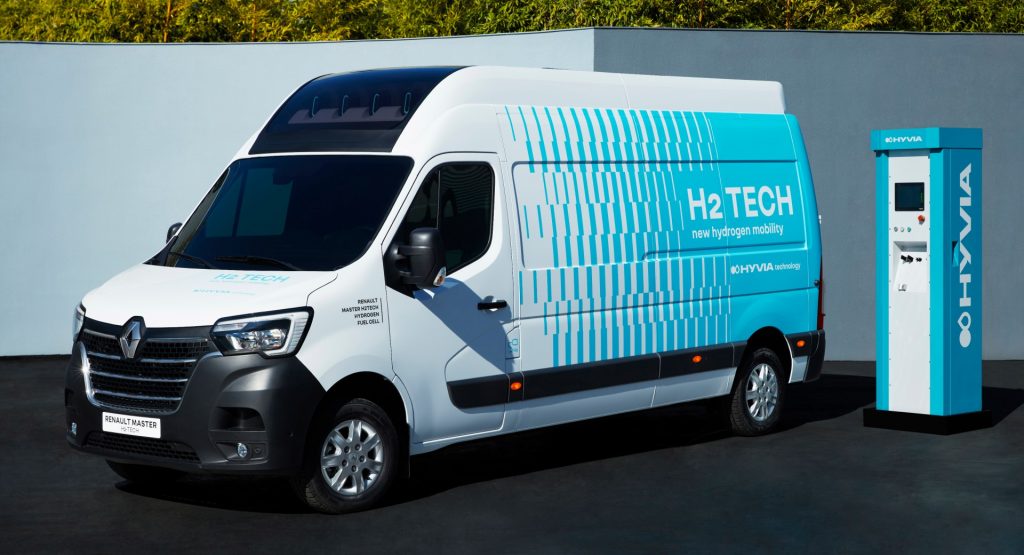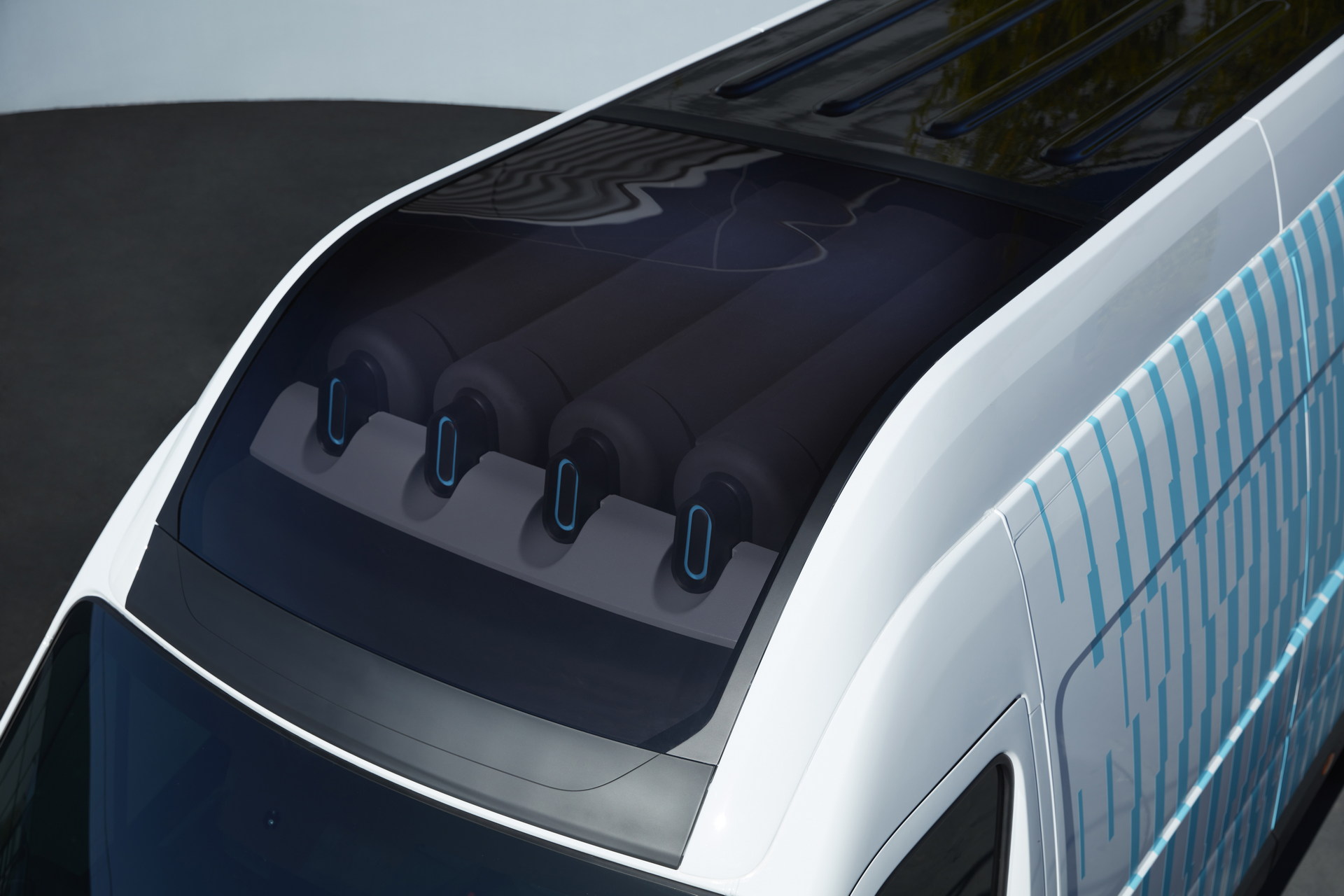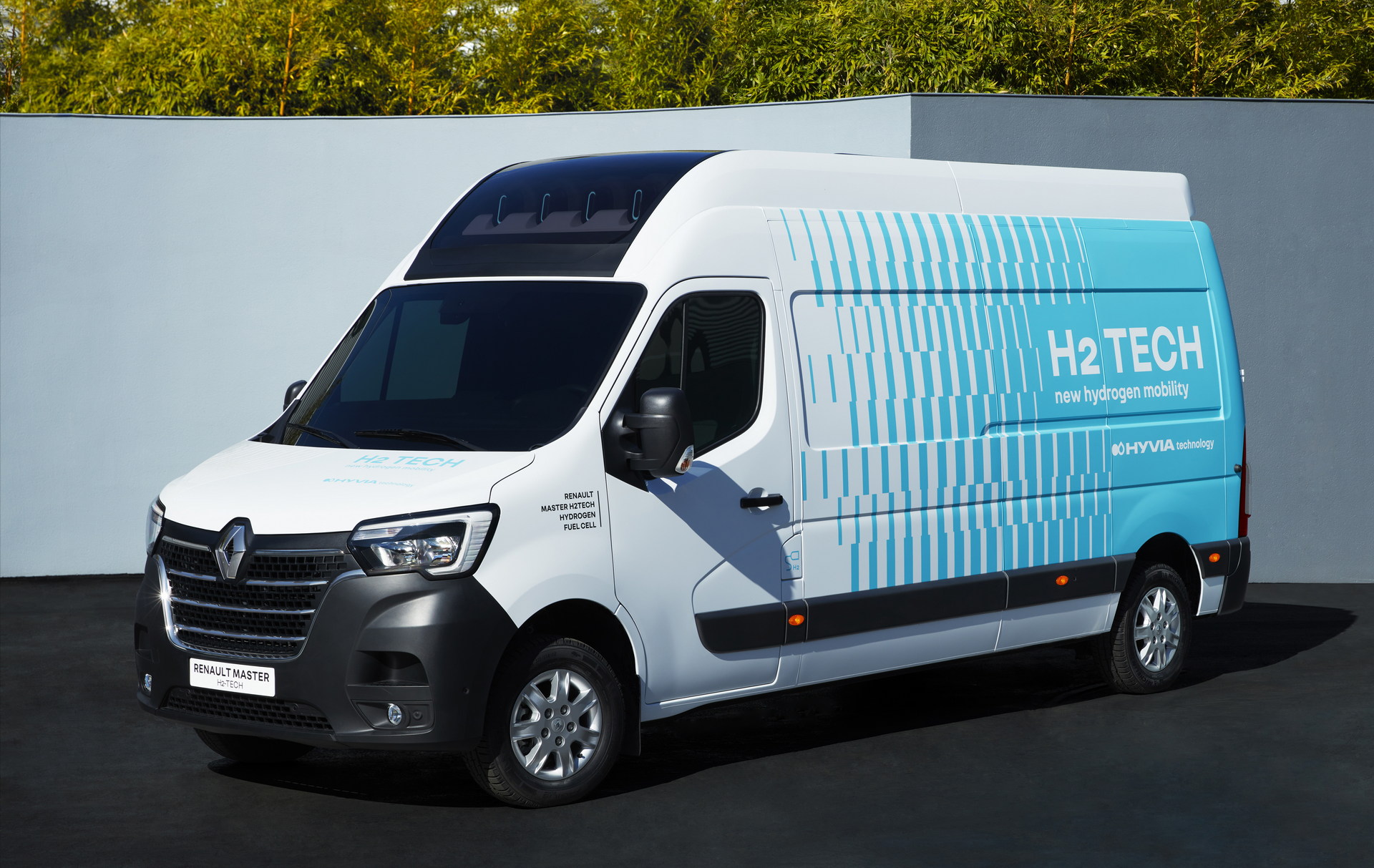Back in July, Renault Group announced it would offer a range of light commercial vehicles with hydrogen fuel cell technology through its HYVIA venture, and now they presented their first prototype. The Renault Master Van H2-TECH will be available in 2022 with hydrogen fuel cells, zero carbon dioxide emissions, and a 500 km (311-mile) range.
The prototype is based on the Renault Master van but replaces the diesel motor with a hydrogen/electric powertrain. This consists of a 30 kW fuel cell, a 33 kWh battery, an electric motor, and four tanks containing up to 6 kg (13.2 pounds) of hydrogen. As we can see from the pictures, the cylindrical tanks are mounted on the roof under a transparent cover. Besides the hydrogen refueling tap, there is also a charging port for the battery.
Read Also: Hyundai Will Invest $1.1 Billion To Build Two New Hydrogen Fuel Cell Facilities In Korea
Being a large van, it still has a cargo space of 12 cubic meters (423.8 cubic feet). HYVIA will also launch an H2-TECH version of the Master Chassis Cab offering a larger 19 cubic-meter (671 cubic feet) cargo space but a more limited 250 km (155-mile) range. Next will be the Master Citybus which will be able to carry up to 15 passengers with a 300 km (186-mile) range.
This is not the first time we hear about a Renault Master with hydrogen technology since two years ago the French automaker announced a similar variant in collaboration with Symbio, a subsidiary of Michelin.
See Also: Kia To Launch Hydrogen-Powered Vehicles For The Military Before First Passenger FCEV Appears In 2028
The company will also offer hydrogen refueling stations for sale, rent, or lease. They will allow a refueling time of just 5 minutes, which is very close to the gas or diesel-powered vehicles. Last but not least, HYVIA focuses on green hydrogen production and distribution, further expanding the eco-friendly nature of its vehicles.
All products of HYVIA will be made in France, with vehicles manufactured in Batilly, hydrogen integration realized by PVI in Gretz-Armainvilliers, electric motors produced in Cleon, fuel cell assembly happening in Flins, and hydrogen tanks sourced from French firm Faurecia.
According to Renault, hydrogen technology is “particularly meaningful for LCVs” as it can “extend autonomy for high loads and intensive use”. With its hydrogen-powered commercial vehicle range, HYVIA aims to meet the needs of “businesses, large accounts, fleets, and local communities”.




























